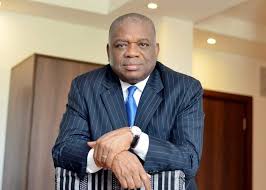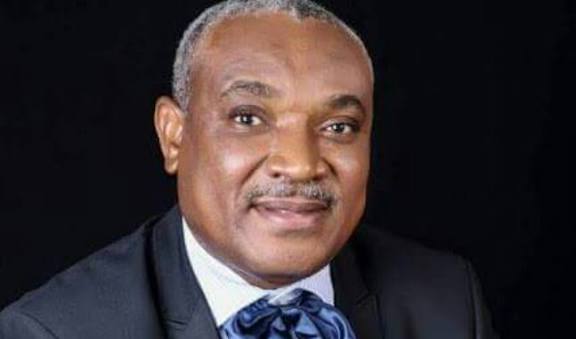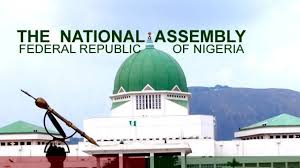By Olanrewaju Aderibigbe
The ruling All Progressives Congress (APC ) at its formative stage in 2014 had as one of its core ideologies the promotion of youths participation in the political governance of Nigeria, a concept that was totally absent in the tradition of the then ruling Peoples Democratic Party (PDP).
The ideology which endeared the party to the youths who formed the largest demography of the voting population, married with other novel ideas aimed at rescuing the masses from crippling poverty and insecurity was the brainchild of the current President, who was to later become the Party’s national leader. And it was among other things responsible for the party’s electoral successes across the country.

It could be recalled that just like the President is presently parading brilliant youths such as Rt. Hon. Olubunmi Tunji-Ojo, Dr. Betta Edu, Dr. Bosun Tijjani among others for ministerial appointments, he, as a renown chief head hunter of this era, also, in the past, discovered and raised budding talents such as Sen. Adeola Solomon Olamilekan in his 30s, Babatunde Raji Fashola in his 30s, as well as Wale Edun also in his 30s among many others.
It was his mastery of that leadership recruitment style that brought about the sustainability of successes he recorded in Lagos as Governor, which he incorporated into the APC campaign manifesto, and for the first time since 1999, a newly formed opposition party would unseat a highly entrenched political establishment, such as the PDP, winning the presidency, as well as grabbing majority seats in both chambers of the National Assembly.
The outcome thus became, for me, a confirmation of Steven Levitsky and Daniel Ziblatt’s arguments in their seminal work — ‘How Democracies Die.’
They are of the opinion that for democratic institutions to serve the purpose of the people, the would-be governing or challenging party must find a way of getting its ideologies embraced by the voting populace, in order to have its campaign programmes implemented with ease ahead of elections.
Therefore, elections or leadership recruitment processes according to them, requires some kind of built-in screening mechanism by which various elements and dispositions are laid on the table for dissection, assessment and eventual decisions.
It must have been this youth friendly political trajectory of the APC that attracted youths such as Rt. Hon. Olubunmi Tunji-Ojo, who were recording unassailable successes in business to venture into politics, following unrelenting calls by members of his constituency whose lives he had already impacted positively even as a private citizen, thereby contesting and recording a resounding victory at the polls in 2019, even against entrenched political blocks.
Coming to the House of Representatives, BTO as he is fondly and popularly called surpassed every known milestone achieved by anyone who has ever represented Akoko North West/Akoko North East Federal Constituency of Ondo state, South West Nigeria. I am from the state, we all attest to this. For the record, his impacts within the period goes beyond the political boundaries of his Constituency, he touched lives in unprecedented manners.
The young man upon obtaining his Certificate of Return wasted no time in establishing himself as a force to reckon with, as he set out to mobilise fellow members-elect in ensuring that the embarrassing scenario of 2015 which saw elements other than the party’s anointed leadership candidates emerged did not reoccur.
His efforts, joined with other loyal party members led to the resounding victory recorded by the immediate past Speaker, and now Chief of Staff to the President, Rt. Hon. Femi Gbajabiamila, during the election of presiding officers on 13th June, 2019.
His effort must have earned him the chairmanship of the House Committee on Niger Delta Development Commission (NDDC), a position he held and performed against all odds in the 9th Assembly, spare-heading a very important probe that led to series of reforms in the Commission, as well as compelling the Buhari administration to constitute a new board for the NDDC.
Also chairing the committee, BTO attracted unprecedented number of zonal intervention (constituency) projects to his people, dwarfing all other achievements recorded by those who held the position before him in all facet of representation.
This again led to his unanimous adoption by his constituents across party lines by demanding that he be returned back to the House, against a subsisting convention guiding the Constituency’s representation in the green chamber which had always been on a four-year rotational basis between the two local government areas (Akoko North West and Akoko North East) that make the Federal Constituency.
So you can see that BTO is not just a record breaker, he actually makes performance records for others to break. He is a pace setter whose key performance index is way far ahead of his peers, a fundamental factor responsible for his nomination by the Number One headhunter of this era, President Bola Ahmed Tinubu — to become a minister of the Federal Republic.
Exemplifying the popular adage which says “it is a child who washed his hands very well that dines with elders,” his strategic thinking and deft political exploits back home in Ondo attracted him to the national leadership of the party, leading to his appointment as the Deputy Director of Policy Research and Strategy Directorate of the All Progressives Congress Presidential Campaign Council.
His record in that capacity in terms of policy research and strategic moves brought to bare his numerous professional trainings as an engineer and one of the first set of Certified Ethical Hackers from the Royal Britannia Training Academy in the United Kingdom.
Highly unassuming gentleman whose generosity is second to none, BTO is a trail blazer and a brilliant mind who has consulted widely in the private sector for notable organizations such as the Nigerian National Petroleum Corporation (NNPC), Petroleum Technology Development Fund (PTDF), The World Bank, Ministry of Petroleum Resources, National Petroleum Development Company (NPDC), Nigeria Gas Company (NGC), National Petroleum Investment and Management Services (NPIMS), National Health Insurance Scheme (NHIS), Nigeria Sovereign Investment Authority (NSIA), Nigerian Content Development and Monitoring Board (NCDMB), National University Commission (NUC), among others.
Given the foregoing explanations, the President has no doubt applied the textbook postulations of Steven Levitsky and Daniel Ziblatt’s arguments to among other things ensure that the unique selling point of youth inclusiveness in governance by appointing intelligent and young minds with proven leadership capacity in the mould of Tunji-Ojo and other confirmed young nominees.
Political parties, in their considered opinions “must, therefore strike a balance between two roles: a democratic role in which they choose candidates (in this case, appointees) that best represent the party’s voters(the youths); and what political scientist James Caeser calls a “filtration” role, in which they screen out those who pose a threat to democracy or are otherwise unfit to hold office.
So President Bola Ahmed Tinubu as a head hunter of note has simply proven to Nigerians that sacrifices and loyalty to the party doesn’t go unnoticed, and also not without its reward, therefore fulfilling his leadership filtration role based on competence, proven capacity, criteria that BTO perfectly embodies.
Olanrewaju Aderibigbe writes from Lagos.



